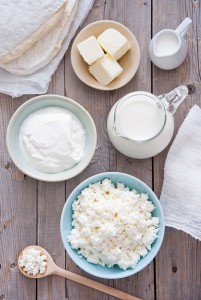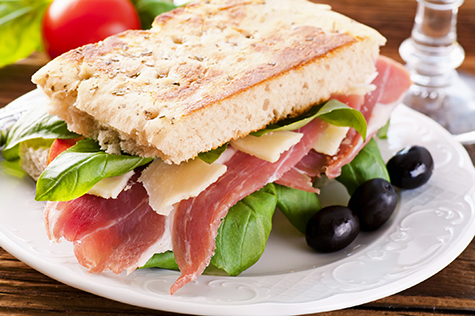Meat, Dairy And Prostate Health Knowledge

Many of my male patients enjoy eating red meat and consuming dairy products on a regular basis. Indeed, red meat and dairy do confer some positive health benefits to men. According to research studies, however, meat and dairy can also contribute to a man developing prostate cancer. Let me explain how.
Meat, Dairy and Your Prostate
Trying to advise my male patients who love eating red meat and dairy often becomes a double-edged sword. On the one hand, red meat contributes the most available source of B12, iron, protein, and carnitine for muscle strength. It also contributes to the production of testosterone via its zinc and cholesterol content.
Good testosterone levels, not too high or too low, are crucial for a man’s ability to fight disease, keep his muscles strong, maintain good energy levels and have a satisfying sex life. Adequate cholesterol levels are necessary to manufacture both male and female hormones and very low cholesterol diets can create problems with the creation of hormones.
Similarly, dairy products contribute necessary calcium for growing-older bones, Vitamin D for a healthy immune system, and a lot of zinc and moderate cholesterol which also helps build testosterone.
 In fact, it’s the testosterone building capacity of meat and dairy that is what makes these two otherwise health-beneficial food groups possibly detrimental to male health. High testosterone levels have been shown by research to contribute to the development of prostate cancer as they raise IGF-1 (insulin growth factor) levels.
In fact, it’s the testosterone building capacity of meat and dairy that is what makes these two otherwise health-beneficial food groups possibly detrimental to male health. High testosterone levels have been shown by research to contribute to the development of prostate cancer as they raise IGF-1 (insulin growth factor) levels.
IGF-1 makes cells, in general, grow rapidly and therefore also helps cancerous cells grow rapidly and metastasize into tumors. Indeed, men with high IGF-1 levels were 40% more likely to have prostate cancer. Conversely, men who were vegetarians had very low rates of prostate cancer.
However, other researchers claim that man evolved on a high meat diet but also ate a diet high in natural vegetables and berries which contains important vitamins, minerals, and antioxidants that lower IGF-1 levels. Diets low in sugar have also been found to produce less rates of cancer overall. It may be, then, that the real key to fighting the prostate cancer potential of meat and dairy is to balance them with a high antioxidant diet and low sugar intake.
Have Your Meat and Dairy and Eat It Too
As I advise my patients who like to eat red meat and dairy, I think it is possible for you to enjoy the other health benefits of these foods without the fear of developing prostate cancer. I believe it all hinges on moderation, choosing the best meat and dairy products available, and ensuring optimal levels of antioxidants. Here’s what I advise:
- Limit red meat: No more than 6 ounces 2-3 times a week, tops.
- Switch to grass-fed beef: Organically grown without antibiotics or added hormones.
- Try buffalo meat: Has lower cholesterol levels than beef and is high in B vitamins.
- Switch to lower fat dairy products: 1% milk, or low fat yogurts. Limit hard cheeses to 1-2 oz per day, 3 times a week.
- Up your antioxidant level intake: Vitamin C 1-2,000 mg a day, selenium 400 mcg a day, resveratrol 200 mg a day, Vitamin D3 1-2000 mg a day.
- Limit your sugar intake: Read labels, don’t exceed 30 grams of sugar a day.
- Ramp up your sex life: My patients sometimes laugh when I tell them that an active sex life can help them prevent prostate cancer. It’s true. A build up of seminal fluid pools in the prostate causing stagnation of cells setting the stage for problems. Orgasm releases those fluids through ejaculation.
- Exercise regularly: Exercise helps drain the build-up of lymphatic fluids in your body as they have no circulation system of their own. The prostate gland is served by the pelvic area lymph nodes and keeping these lymph nodes healthy is crucial.
Prostate cancer ranks second to lung cancer deaths in the United States in men over the age of 50. As I tell my male patients, it is crucial that you become proactive in your prostate health by paying close attention to your diet of which moderation in meat and dairy is key.
In addition, ensuring optimal nutrition with vitamins, minerals and crucial antioxidants, creating a healthy sexual outlet, exercising 3-4 times a week, de-stressing as much as possible can help you fight against developing prostate cancer.
